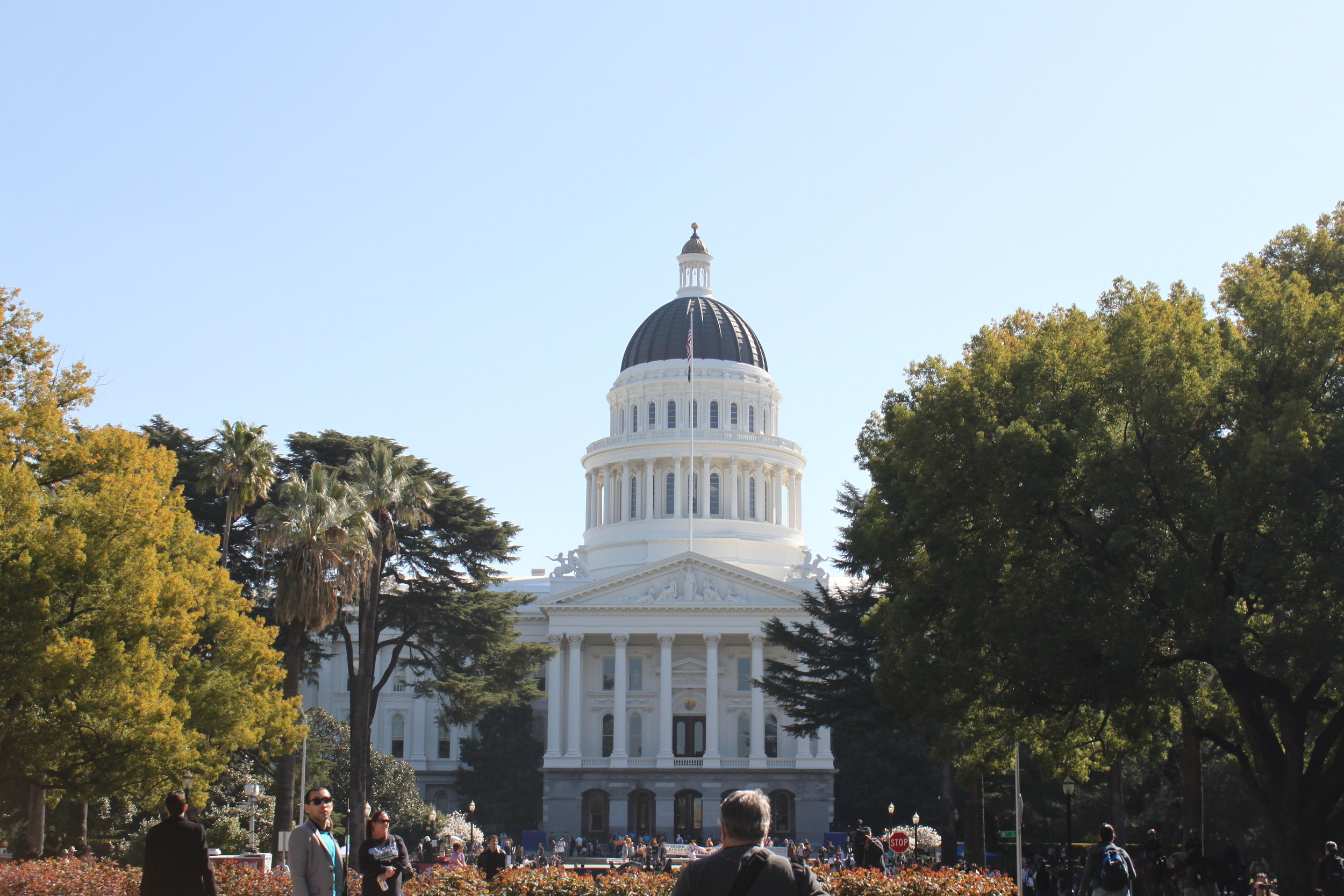Supermajorityland
by Natasha Kang
Following a crushing victory in state legislative races in November, California Democrats accomplished a feat not realized since 1883 – a supermajority in both houses of the State Capitol, and control of Governor’s mansion.
For the first time in more than a decade, Democrats are able to pass budgets, taxes and fee increases without any support from Republicans.
Newly-elected California Republican Party chairman Jim Brulte said the Democrats’ new position is a good news-bad news scenario. The good news: they have all of the power in the state government. The bad news: they get all of the blame.
At this point, the only thing Democrats have to fear is themselves. If they can resist infighting, including vetoes from there own governor, and the possibility of overriding those vetoes, they have the power to make big changes. Or they could crack.
Despite the endangered species status of Assembly and Senate Republicans, the Democratic Party has been foiled multiple times in its plans to roll back spending cuts, amend the tax code, and rebuild the water system.
The increase in population among Democrats in the Capitol spells a new relationship for the GOP: sit back and watch.
From the sidelines, Republicans are worried that the tight Democratic control of the statehouse will lead to death by a thousand new taxes.
This fear, however, is not apparent at all. Only a few Democrats seem to be pushing for new taxes. One of them, Sen. Mark Leno (D-San Francisco), introduced a proposal in December to roll back part of Proposition 13, letting voters pass property taxes more easily in order to fund their local schools.
Other Democratic legislators such as Sen. Noreen Evans (D-Santa Rosa) wanted to go further and add a tax to oil extraction to fund state parks. California is currently the only state that doesn’t tax resources extracted from public lands. Still, it’s unclear if these legislators will be backed by their fellow Democrats in their proposals.
Many of these tax proposals could be blocked by a growing bloc of moderate Democrats in both chambers. Moreover, Gerry Brown has pledged to seek voter approval of any tax increases, and expressed a willingness to veto new taxes.
Another issue dividing Democrats is the implementation of the Federal health care reform. The proposed answer is to expand the MediCal program, which is receiving no support from the Brown administration.
Gov. Brown’s administration is against the full expansion of MediCal, as the California Secretary of Health and Human Services, Diana Dooley, announced at a symposium on healthcare reform.
Despite assurances that the Federal government would foot the bill for the first three years of the MediCal expansion, Dooley said that the next decade would leave California with a $6 billion burden to pay over the next decade.
The alternative plan, which aims to offer less coverage to the new pool of health insurance recipients, is drawing ire from legislative Democrats. Sen. Ed Hernandez (D-West Covina), chair of the Senate Health Committee, swung for the fences during a Health Access symposium in December, saying “I have every intention to make sure that every single person has the fullest amount of benefits available and draw down as many federal dollars as we possibly can.”
To make this happen, Hernandez proposed California should raise the rates paid to providers for treating MediCal patients. He claimed that California’s rates are among the lowest in the nation and deter physicians from participating.
Another area causing a fracas among Democrats is a reform to the California Environmental Quality Act (CEQA), which was used to protect environmental interests around the State. Spearheaded by the recently resigned Sen. Michael Rubio (D-Bakersfield), Democrats hoped to modernize the act to help builders expedite the environmental review process.
Reform efforts, currently stalled by Rubio’s abrupt resignation a month ago, were initially panned by a number of Democratic lawmakers last Summer when Silicon Valley interests proposed a reform that significantly rolled back the law. Months later, and a more moderate reform proposal, Democrats still face stiff opposition from various environmental groups keen on upholding the Reagan-era law.
Competitive districts and the top-two primary paved the way for the Democratic supermajority to come forth and also the expansion of the moderate bloc, with many pundits expecting the party to hold control for the remainder of the decade.
A new day for the California Democratic Party is dawning in the State Capitol. Only time tell if they can avoid tripping over each other and keep such vast control over the Golden State.
Correction: A previous edition of this story along with the print edition of Davis Political Review (Vol. 1, Issue 1) misspelled the name of California Secretary of Health and Human Services Diana Dooley.

